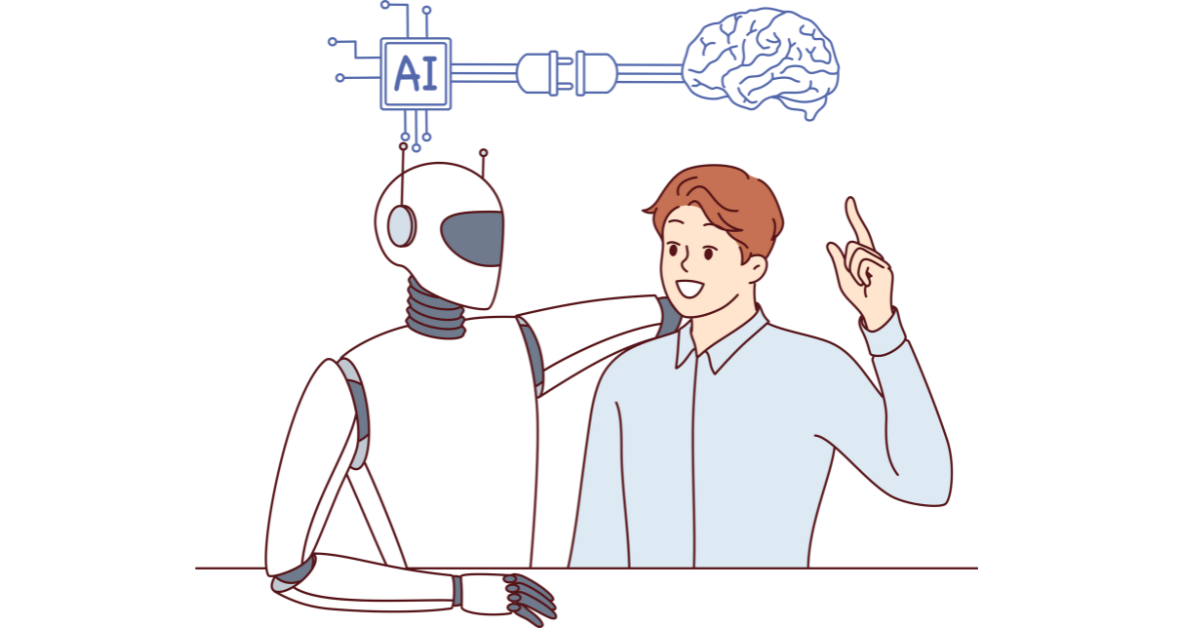Faster than any earlier technology, artificial intelligence (AI) is changing the workplace. Many people worry about their prospective employment. Will I Lose My Job Due to AI-Will artificial intelligence either replace your employment or open new prospects? Let’s examine the data, patterns, and tactics you need to land in the changing employment scene.
Realizing the Revolution in Artificial Intelligence
From healthcare and banking to manufacturing and creative arts, artificial intelligence affects practically every sector today. Experts see artificial intelligence touching almost every facet of employment by 2025. The World Economic Forum projects that although artificial intelligence and automation may replace 85 million jobs by 2025, they might also generate 97 million new ones. Though the truth is more complex, this net rise of 12 million jobs seems encouraging.

Which Jobs Carry the Most Risk?
Some positions are more susceptible than others. Jobs involving basic customer service, organized physical labor, or routine cognitive activities run the most risk. As for:
Many banks today employ artificial intelligence-powered chatbots and ATMs.
Companies like Foxconn have increased productivity by substituting robots for tens of thousands of employees.
Self-driving technology is developing; now, autonomous vehicles complete long-distance deliveries.
By 2025, millions of jobs in retail, manufacturing, transportation, financial services, and customer service might be automated. For instance, automation may account for half of transportation work and thirty percent of retail employment.
The White-Collar Depression-Will I Lose My Job Due to AI
The influence of artificial intelligence transcends blue-collar jobs now. We will be living through what some refer to as the “White-Collar Recession” in 2025. While recruiting for professional jobs in finance, technology, consulting, marketing, and law has slowed or ceased, corporate earnings and productivity are growing. From the employment market are disappearing entry-level analysts, young attorneys, and HR workers. AI-driven efficiency improvements that render certain roles obsolete drive this change, not economic downturns.
The Real Count of Jobs Being Lost
Numbers present a complicated picture:
AI might impact up to 300 million jobs globally by 2025.
23.5% of US organizations have already replaced employees with AI technologies such as ChatGPT.
Just in May 2023, AI directly caused 3,900 US employment losses.
Automation has destroyed 1.7 million US industrial jobs since 2000.
By 2030, up to 14% of workers worldwide could have to switch occupations.
These figures demonstrate how artificial intelligence is generating new employment even as it is replacing others. Still, the new jobs sometimes call for distinct kinds of expertise.

What Kinds of Jobs Are Created Here?
AI creates new jobs while also eliminating others. New roles are arising in disciplines including:
AI maintenance and development
Interpretation of data analysis
Digital security
Engineering of robotics
Ethics and policies in artificial intelligence
Human-AI cooperation management
Many of these positions need extensive technical knowledge, creativity, emotional intelligence, and the capacity to collaborate with smart machines.
The Competencies You Need to Remain Relevant-Will I Lose My Job Due to AI
Your adaptability becomes very vital as artificial intelligence changes the workplace. Between 2025 and 2030, the World Economic Forum projects 39% of workers’ current skills will become obsolete. To keep ahead, concentrate on honing abilities that artificial intelligence cannot readily reproduce:
Critical thinking helps one to make judgments and solve difficult issues.
Creativity: Think fresh and create.
Emotional intelligence: Recognize and control your own as well as others’.
Digital literacy involves understanding and effectively using digital tools and platforms.
Work successfully with artificial intelligence systems as well as people.
Reskilling and upskilling will be absolutely vital. Many companies these days provide training courses to assist staff members in moving into new responsibilities.
How to Guard Your Career Against AI Disruption
One may proactively future-proof their profession by:
Accept lifelong learning and keep improving your abilities by means of classes, seminars, and internet tools.
Look for human-centered positions. Emphasize roles requiring sensitivity, ingenuity, and sophisticated problem-solving.
Use artificial intelligence as a tool; discover how to increase your efficiency and output by means of AI.
Connections will enable you to remain updated about industry trends and find fresh possibilities.
Be adaptable and open to switching positions or sectors as the employment market develops.

AI’s Psychological Effects on Employees-Will I Lose My Job Due to AI
For many employees, the rapid emergence of artificial intelligence generates uncertainty and fear. According to polls, thirty percent of workers worry that by 2025 artificial intelligence will take their place. Younger employees—especially those between the ages of 18 and 24—are particularly concerned. However, fear often exceeds the actual situation. Despite 14% of employees losing their jobs due to artificial intelligence, those affected often overstate the overall impact.
Employers may help by means of training, assistance, and clear communication. Emphasizing what they can manage, workers should remain proactive and knowledgeable.
The Part Governments and Businesses Play-Will I Lose My Job Due to AI
Managing the AI change depends much on organizations. Forward-looking businesses are funding new career pathways, staff training, and artificial intelligence use to supplement rather than replace human ability. By sponsoring reskilling initiatives, modernizing educational systems, and guaranteeing fair labor practices, governments may help workers.
Policies that support innovation while safeguarding workers’ rights will help define the nature of employment going forward. A successful transition depends on cooperation among industry, government, and workers.
Stories and realities About Job Loss and AI
Numerous stories exist regarding artificial intelligence and its impact on jobs. Let us differentiate fiction from reality:
Myth: Artificial intelligence will replace all we do.
Reality: AI will generate new positions needing human abilities while automating some chores.
Myth: Low-skilled employment alone runs danger.
Reality: AI shapes white- and blue-collar jobs.
Myth: AI makes competition impossible.
Reality: You may flourish by honing abilities to support artificial intelligence.
Knowing these facts will enable you to decide on your future with wisdom.
Special Insights: The Human Edge in an AI World
AI suffers with ambiguity, empathy, and ethical judgment even if it shines at data processing and repeated task performance. People offer special value by:
Writing gripping stories that appeal to people is what we do.
Navigating difficult moral dilemmas and ethical thinking
Leadership: Motivating groups toward transformation.
Cultural awareness: Appreciating many points of view and settings.
These human qualities will always be in demand even as artificial intelligence gains increasing capability.
Case Study: Healthcare AI
Take healthcare, a sector undergoing significant AI-driven transformation. AI systems today help with administrative chores, patient monitoring, and diagnosis. Still, physicians, nurses, and caregivers are indispensable for offering empathy, deciphering difficult problems, and rendering moral judgments. The direction of healthcare will combine human compassion with artificial intelligence efficiency.
Case Study: AI in Retail
Retailers have quickly embraced artificial intelligence to improve operational effectiveness and consumer experience. Recommendation engines enabled by artificial intelligence today can customize shopping, thereby increasing client happiness and sales. Reduced demand for cashiers and stock clerks has come from automated checkout systems and sophisticated inventory control. Retail employees who prioritize in-store experiences, customer service, and relationship-building still flourish, nevertheless. Retailers combining artificial intelligence with human touchpoints find better brand value and loyalty.
Case Study: AI for Legal Services
Once considered resistant to automation, the legal industry is already experiencing effects from artificial intelligence. AI-powered systems are handling contract analysis, document assessment, and legal research, among other things. For legal offices, these instruments save time and cut expenses. Still, sophisticated litigation, negotiation, and client counseling depend upon human knowledge. Lawyers who embrace AI solutions for their daily tasks may focus more on advocacy, strategy, and building client trust. The legal profession is thus changing rather than vanishing.
Getting ready for the future: action steps
Here’s how you flourish in the era of artificial intelligence:
Evaluate your present abilities. Point out places needing work and gaps.
Create learning objectives by selecting abilities fit for future employment trends.
Experiment with artificial intelligence tools; learn about the most recent developments.
Join professional networks to exchange ideas and grow personally via peer learning.
Remain educated: Track sector news and studies on artificial intelligence and employment.
Early action will help you transform AI disturbances into advantages.
Ultimately, will artificial intelligence cause you to lose your job?
Artificial intelligence will continue to transform the employment market. While some positions will go, many fresh prospects will surface. Success comes mostly from flexibility, lifelong learning, and using your own human qualities. See artificial intelligence as a tool for development and creativity instead of worrying about it. Your capacity to grow and grab fresh opportunities will define your future job.



